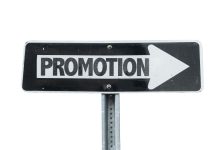BMM Testlabs has produced a white paper written by Senior Manager of Marketing and Education Robin Bernhard that aims to tackle the thorny issue of integrity fees on sports betting. Titled ‘Sports Betting and the 1% Integrity Fee Explained’, it sets out some of the key arguments for and against such a levy and examines if and how it might be applied.
In the report’s abstract, Bernhard wrote: “Amongst all the noise and under the headlines, the NBA, PGA and Major League Baseball reiterated their support for what is being called an integrity fee that deserves more attention, discussion and thought by stakeholders in the industry and the general wagering public. The purpose of this paper is to shine a light on the proposed integrity fee. Specifically, I’ll talk about the concept as well as the origin of this idea, where integrity fees stand now and what questions vested interests might want to ask themselves.”
In his paper, Bernhard also offers a breakdown of the figures related to a one per cent fee. “What is being proposed currently is a 1% integrity fee on the handle that would be paid to each league as bets were made on that specific sport. Squinting at the math? Think of it this way, if you’re a sportsbook that takes in $100,000 on a game across all bets, then makes 5% profit after you’ve paid out all the winners, you have exactly $5,000 in your pocket.
“That 1% integrity fee would translate to 20% or $1,000 from your profit, which would be shipped straight to a professional league or governing body. Pundits and politicians everywhere are guessing at the potential size of a mature US sports betting market, but even for the most conservative guesses, the implications of a 1% integrity fee are enormous.”
Additionally, the author poses some important questions for further debate. For example, should any fee be tied to revenue instead of handle? Is there any part leagues can play (beyond what they do now) to earn part of the revenue from sports betting? Would such a fee be passed on to customers? Would such a fee hurt current sportsbooks and disincentivize new ones from opening?
He also asks should sports betting have a governing body to monitor betting data and raise flags to professional leagues? Should there be a federal law or perhaps 50 state laws? Offshore and black-market have always existed without data monitoring and integrity protocols to professional leagues, why start now?
The full report can be viewed here.














